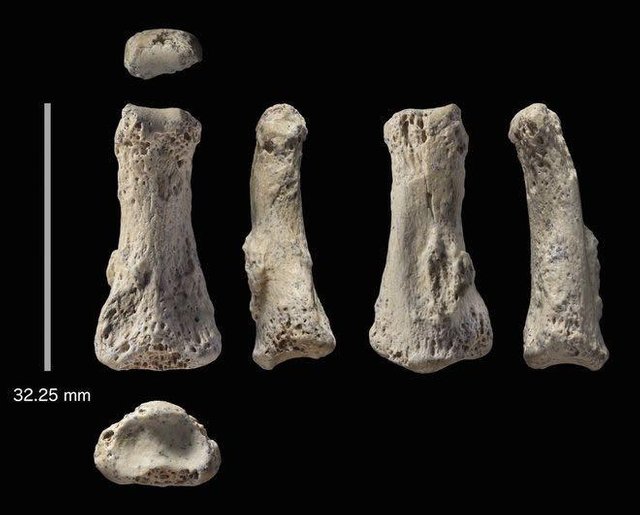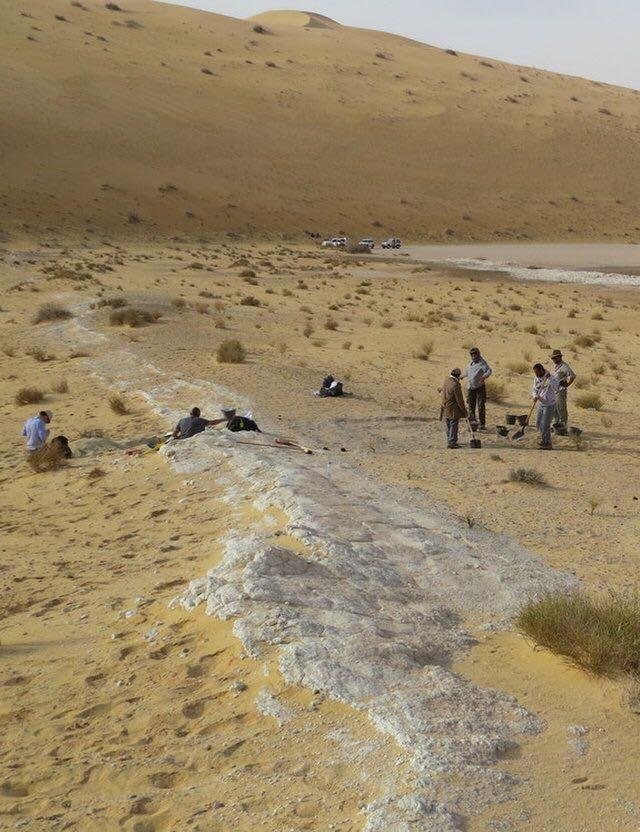Rewriting History

A sliver of bone the size of a Cheeto may radically revise our view of when and how humans left Africa.
The 85,000-year-old fossilized human finger bone, unearthed in the Saudi Arabian desert, suggests that early humans took completely different routes out of Africa than was previously suspected, a new study finds.
The finding is the oldest human fossil on record unearthed outside of Africa and the Levant (an area encompassing the Eastern Mediterranean, including Israel), and the oldest human remains uncovered in Saudi Arabia, the researchers said
Until now, many scientists thought that early humans left Africa about 60,000 years ago and then hugged the coastline, living off marine resources, said study senior researcher Michael Petraglia, an archaeologist at the Max Planck Institute for the Science of Human History in Jena, Germany.
"But now, with the fossil finger bone from the site of Al Wusta in Saudi Arabia, we have a find that's 85,000 to 90,000 years old, which suggests that Homo sapiens is moving out of Africa far earlier than 60,000 years ago," Petraglia told reporters at a news conference. "This supports a model not of a single, rapid dispersal out of Africa 60,000 years ago, but a much more complicated scenario of migration.

A view of Al Wusta, Saudi Arabia, where archaeologists found the fossilized finger of a Homo sapiens. The Nefud Desert's sand dunes surround the ancient lake bed
Wow 😲
Great 👍🏻